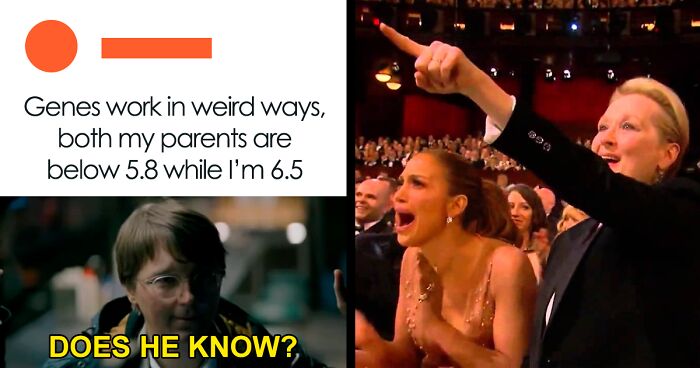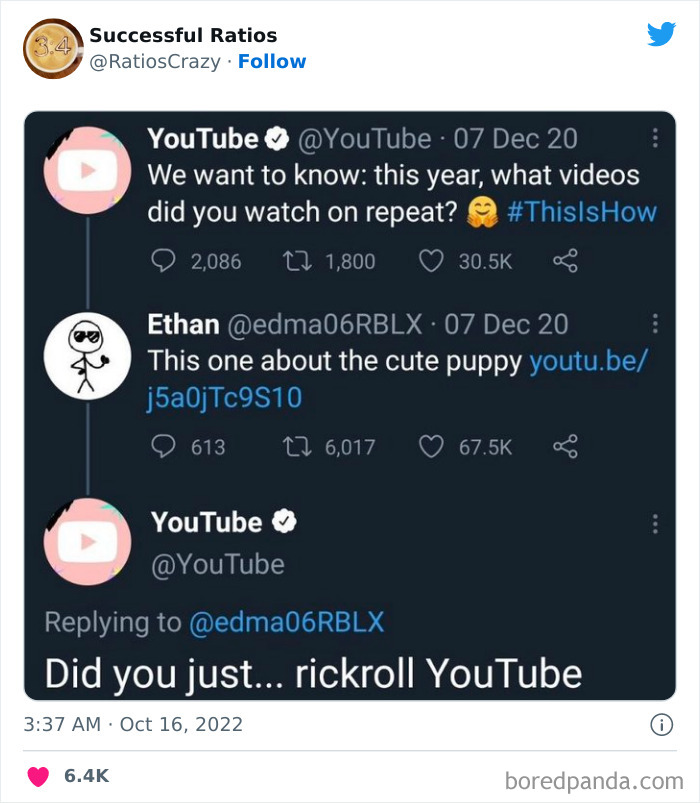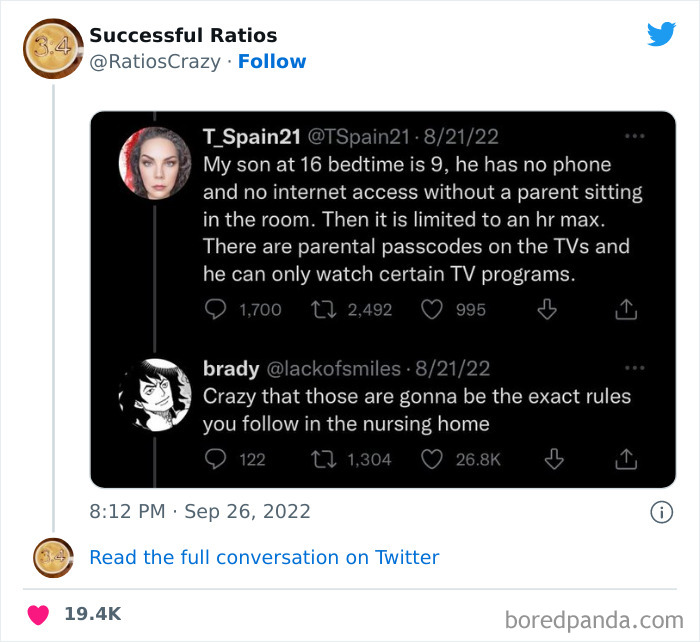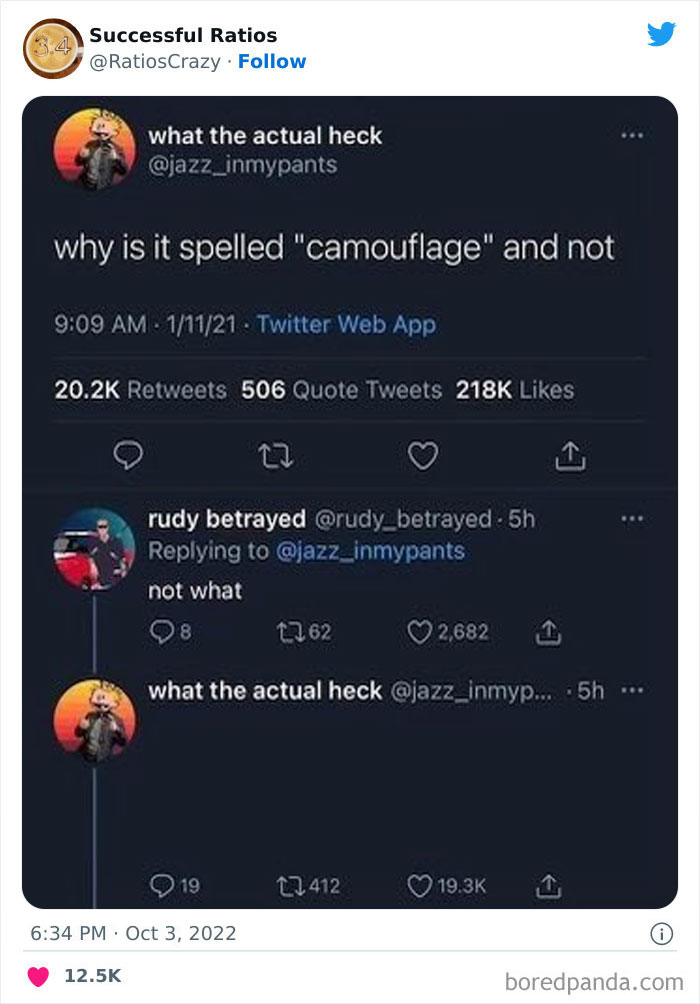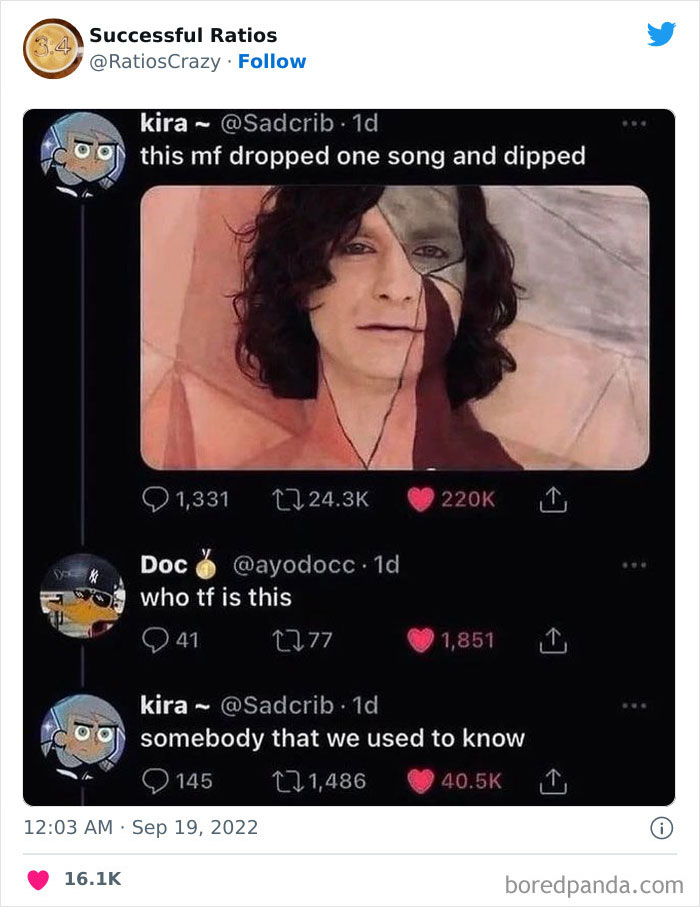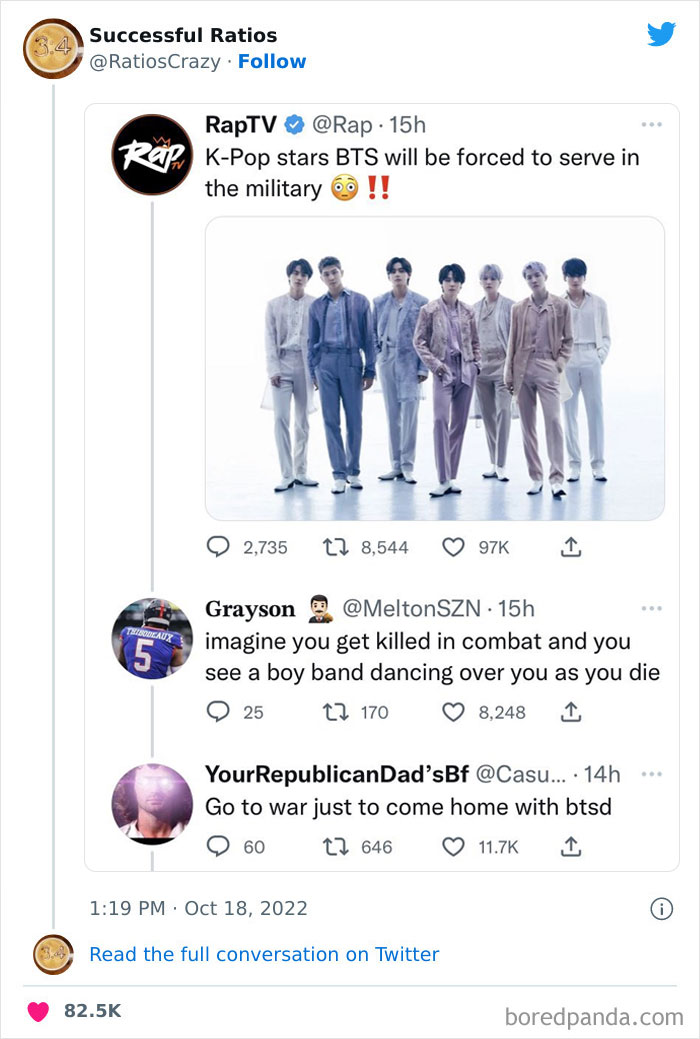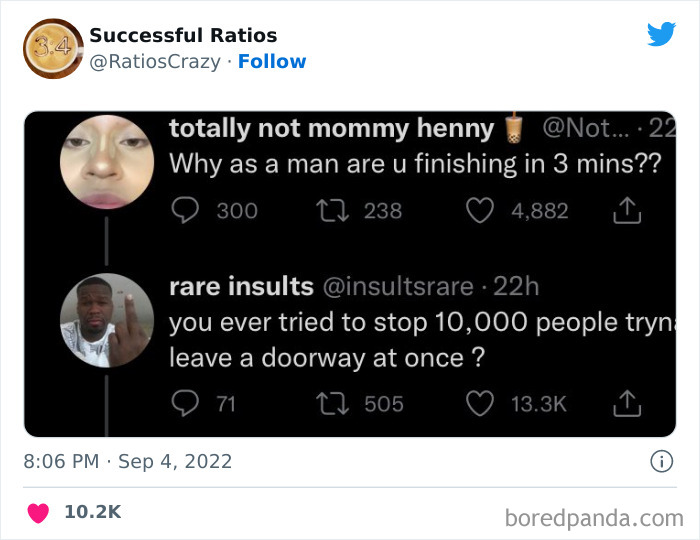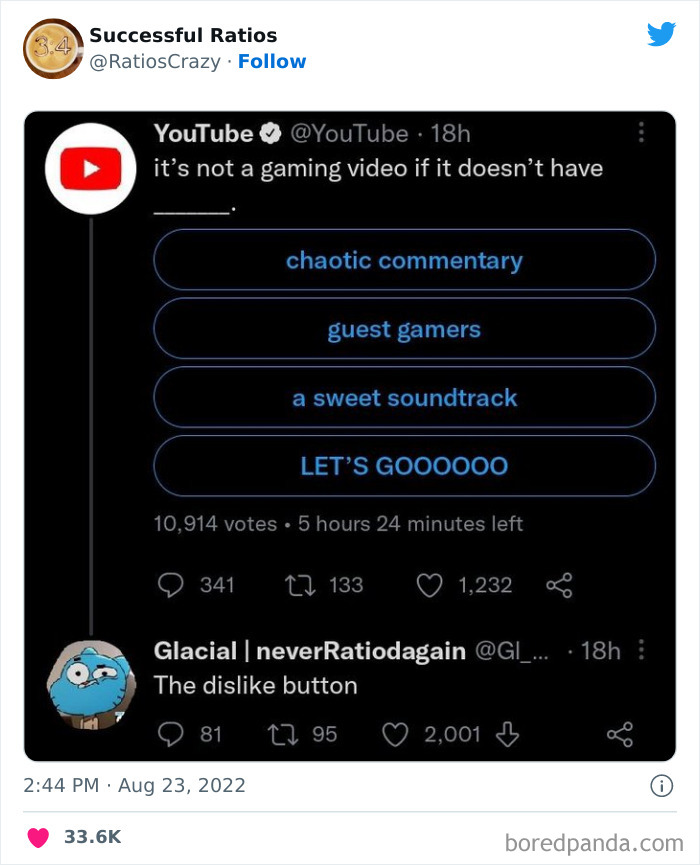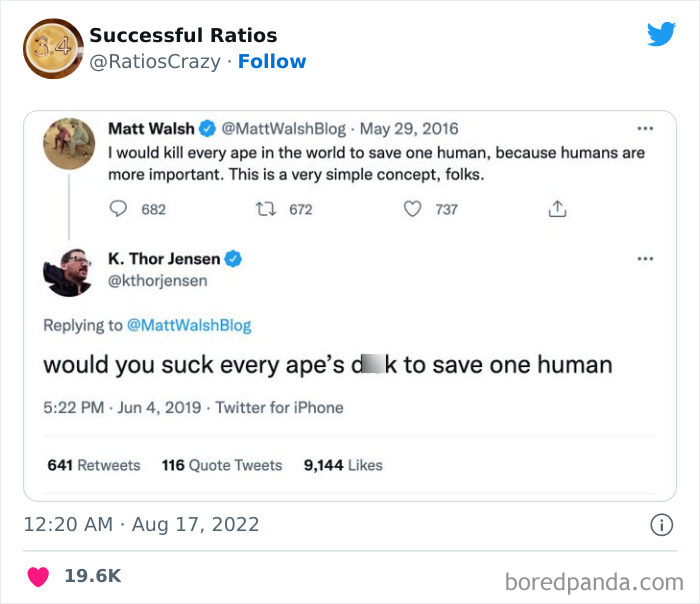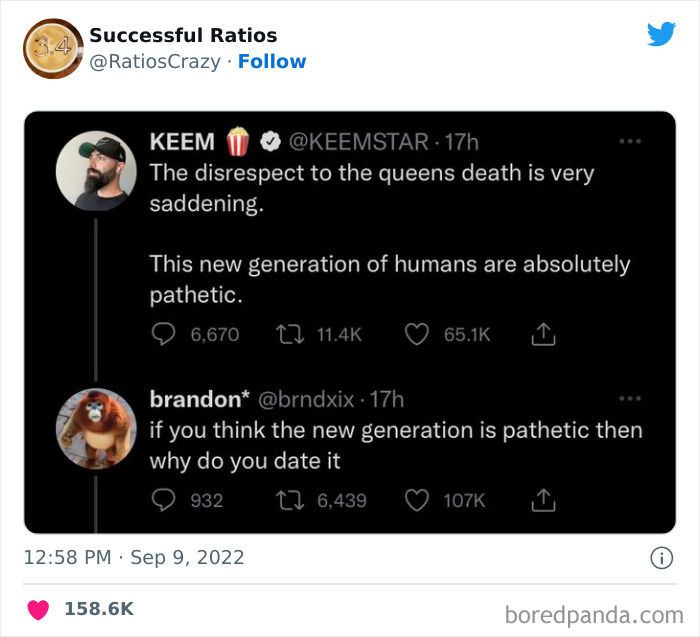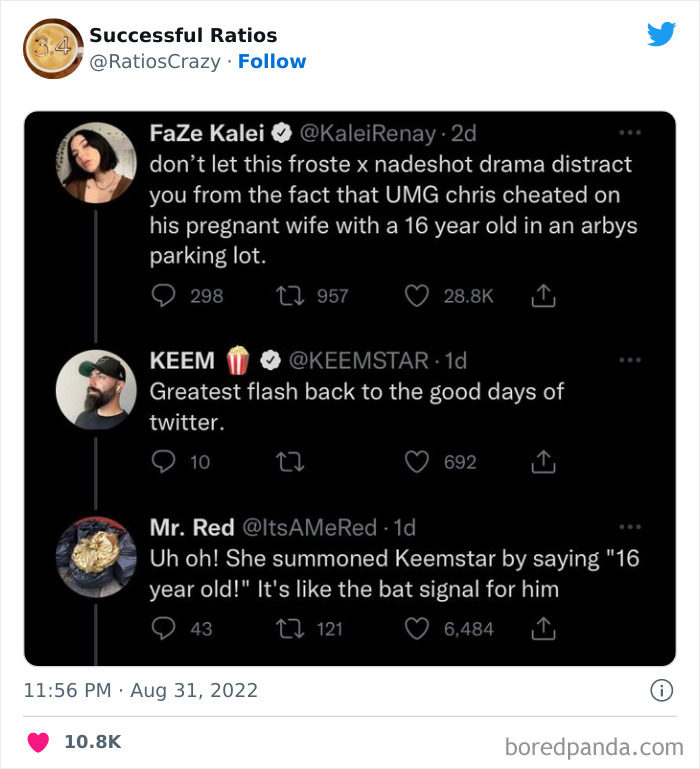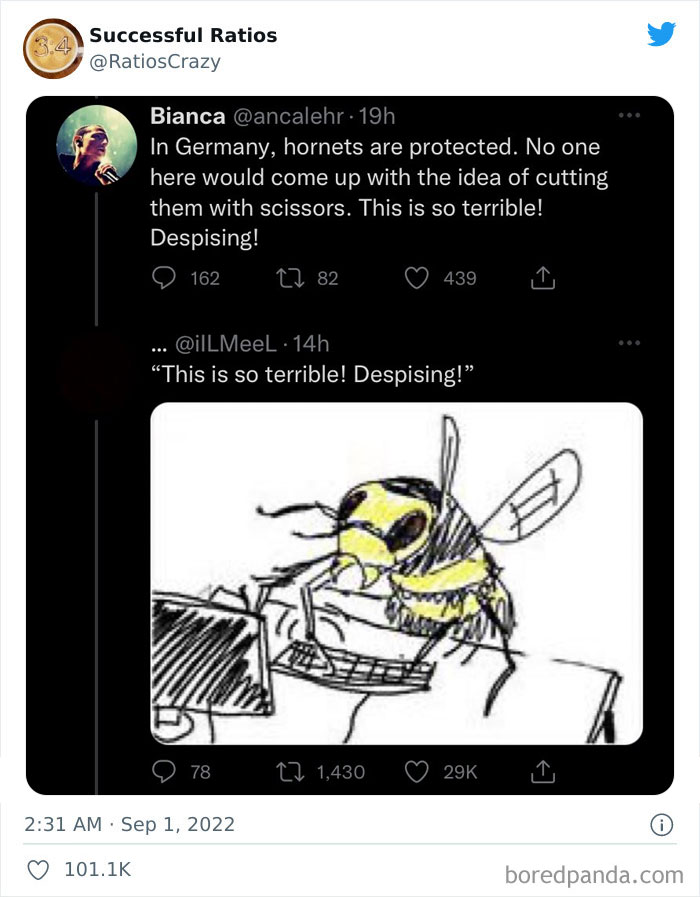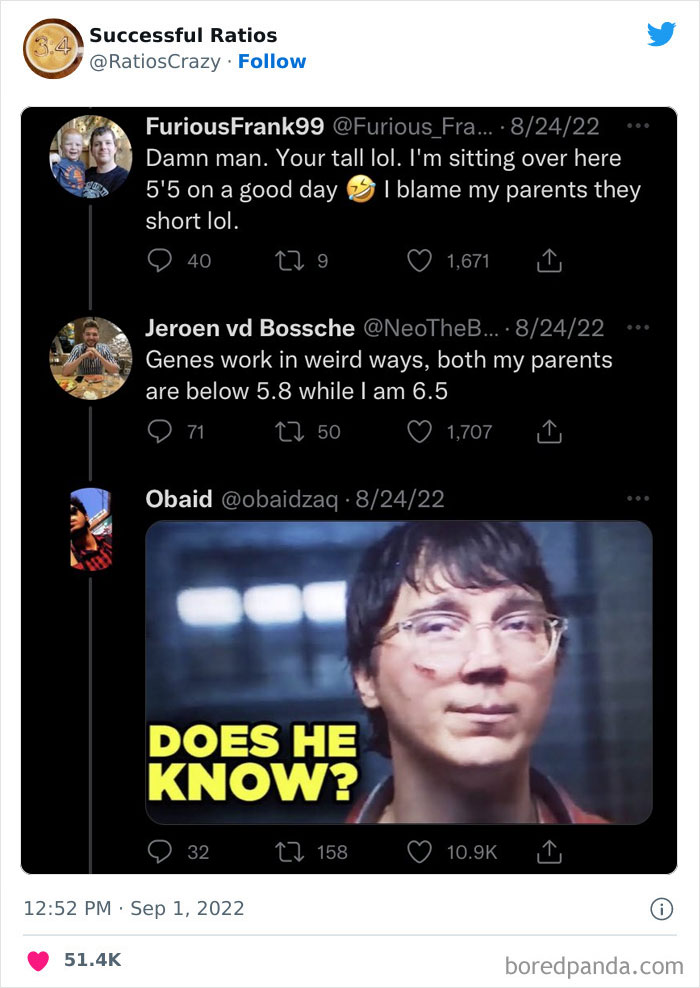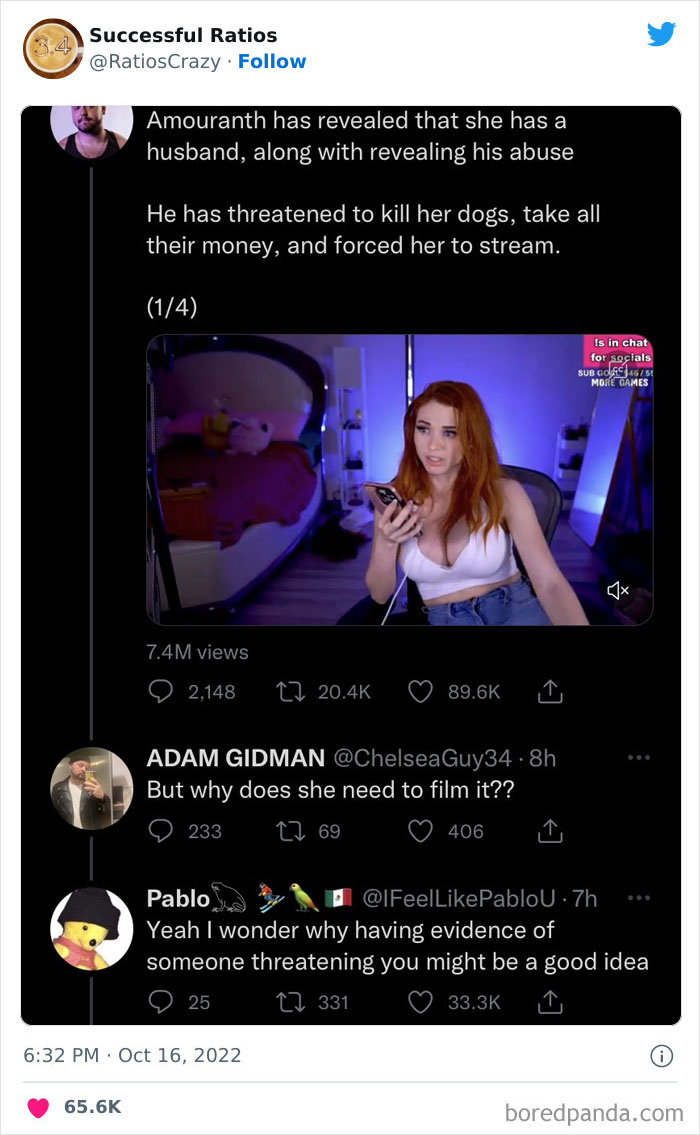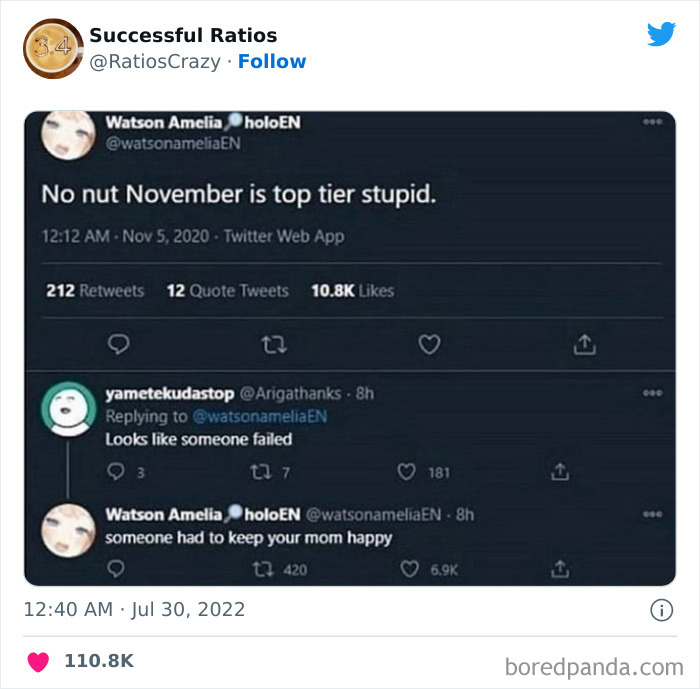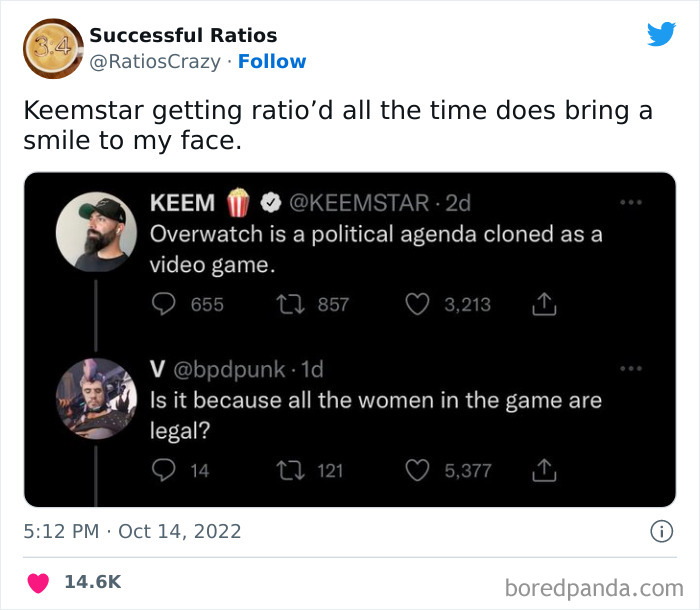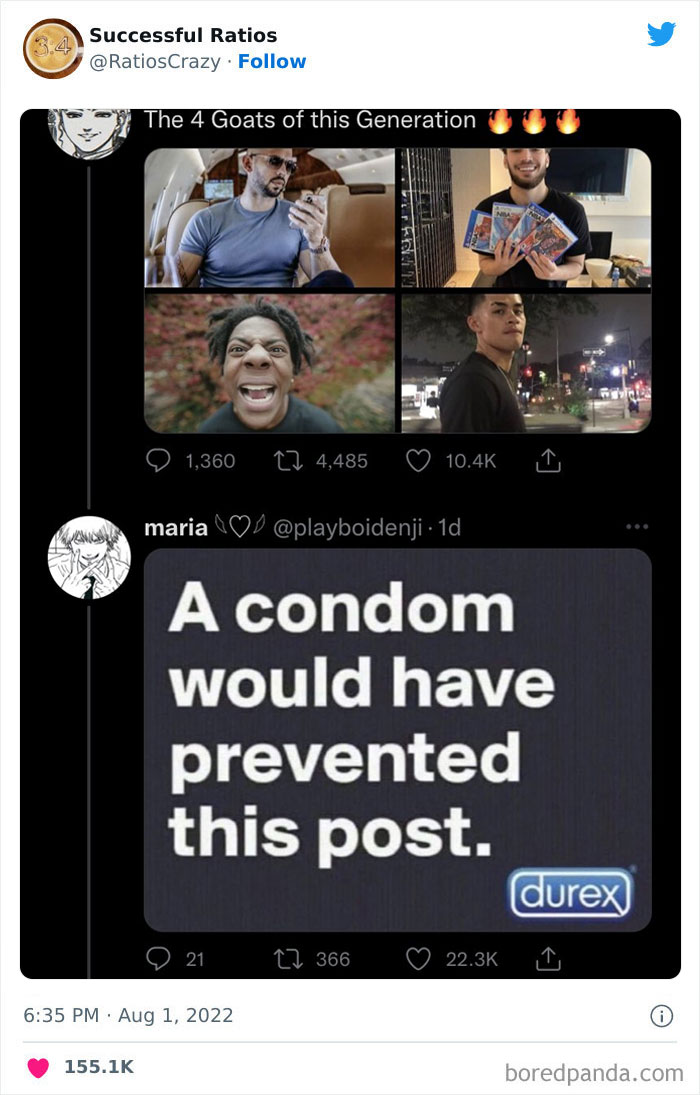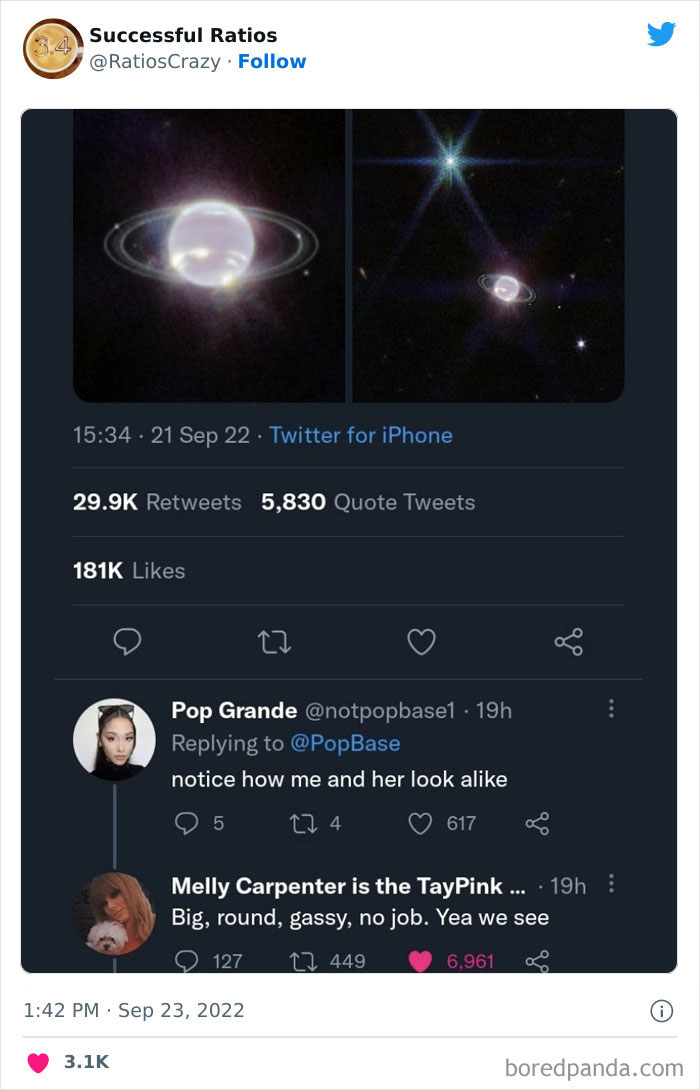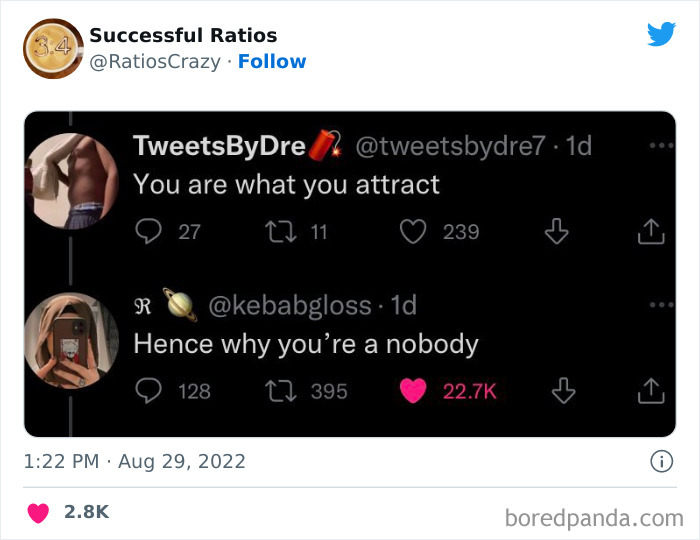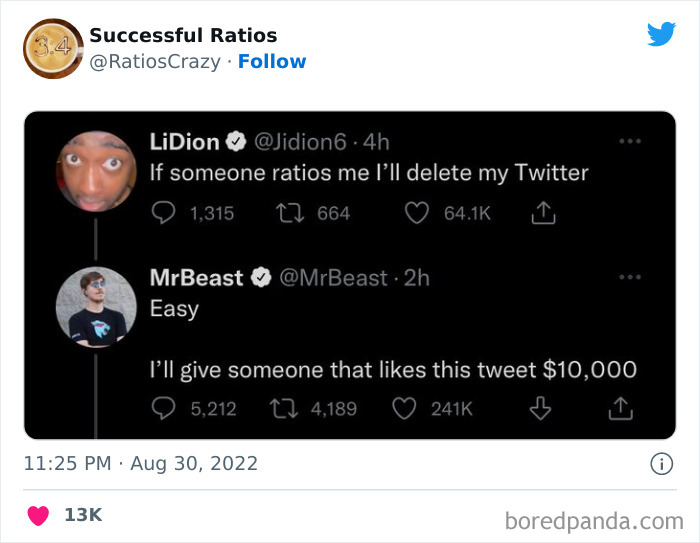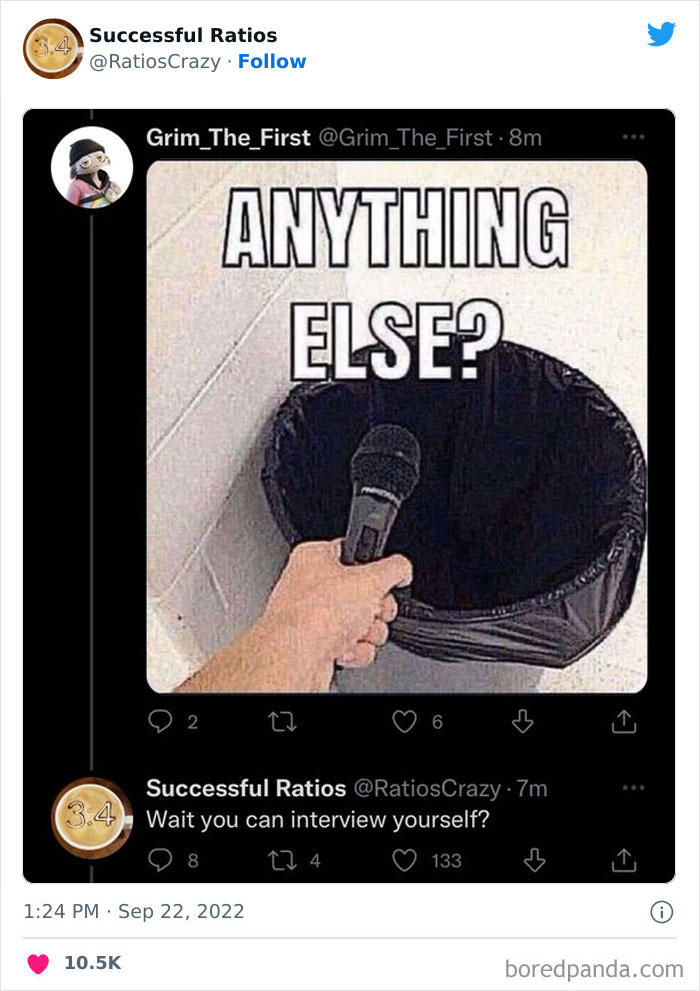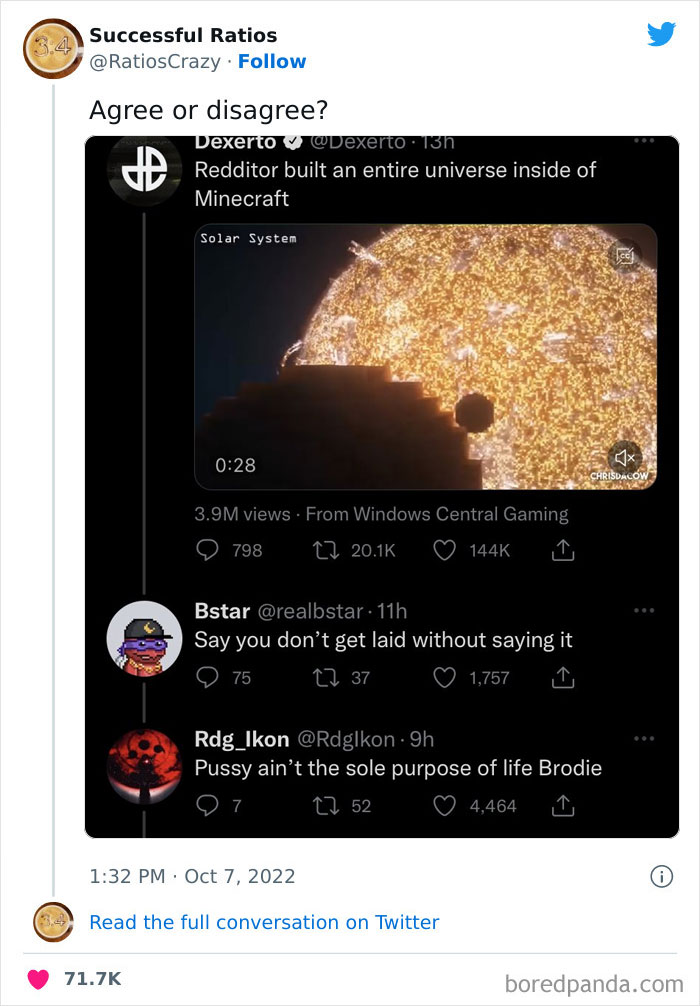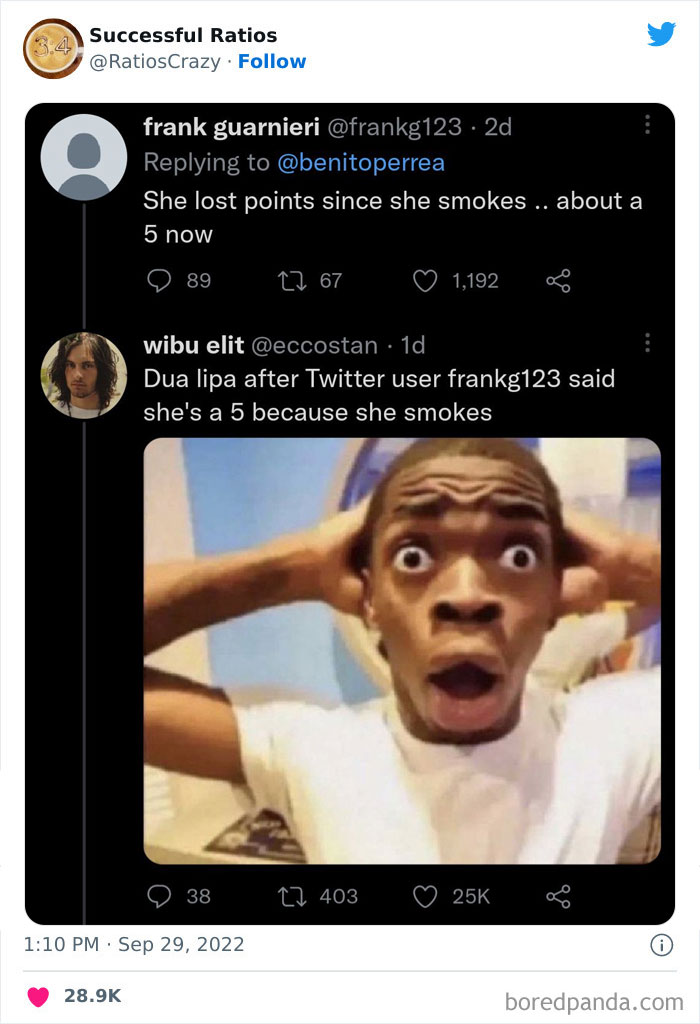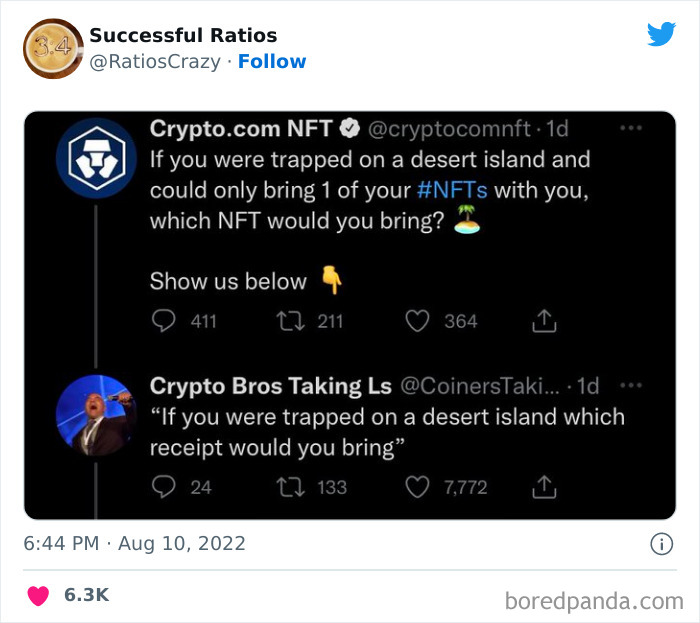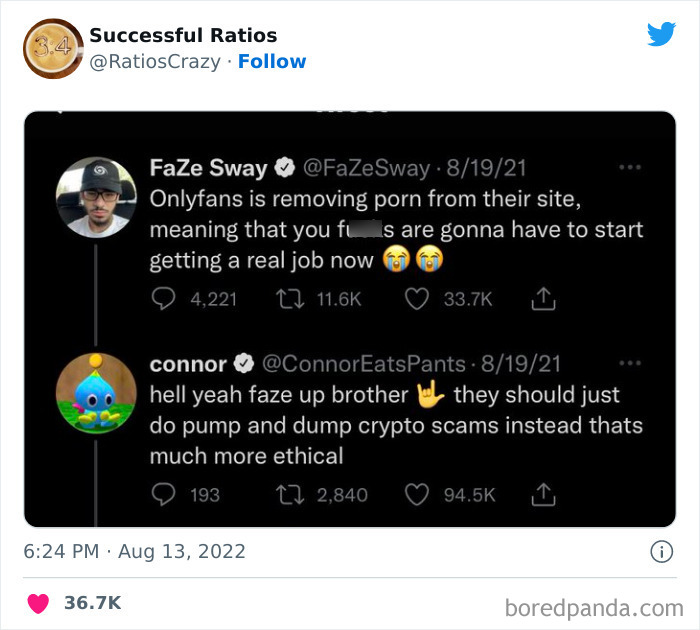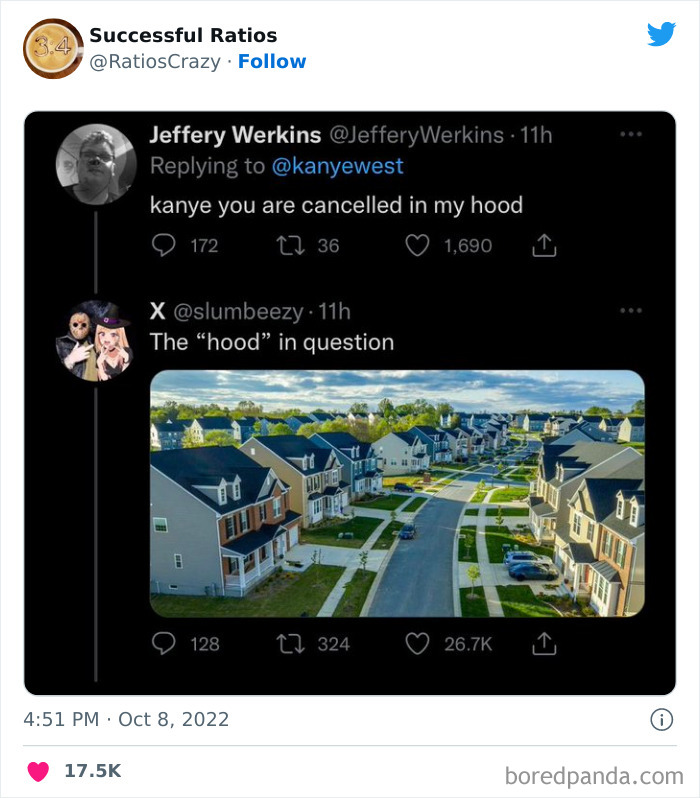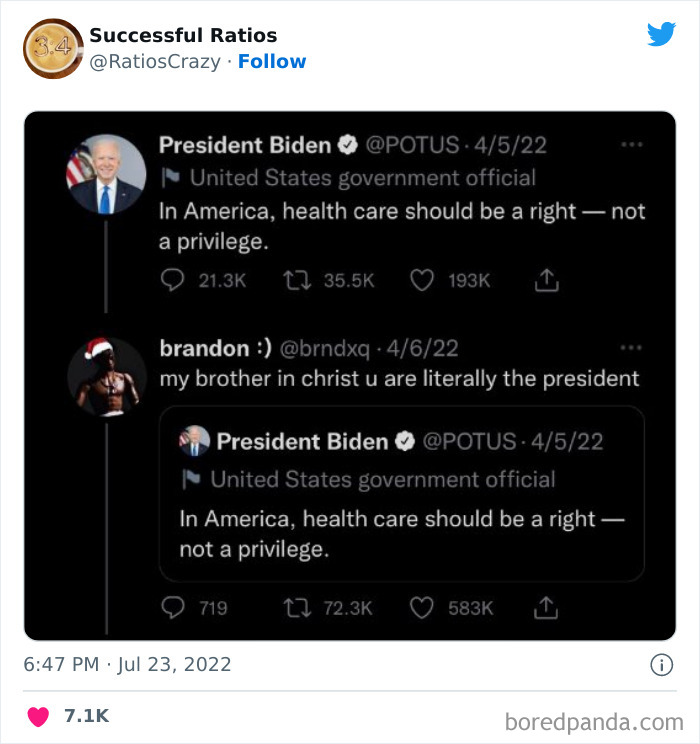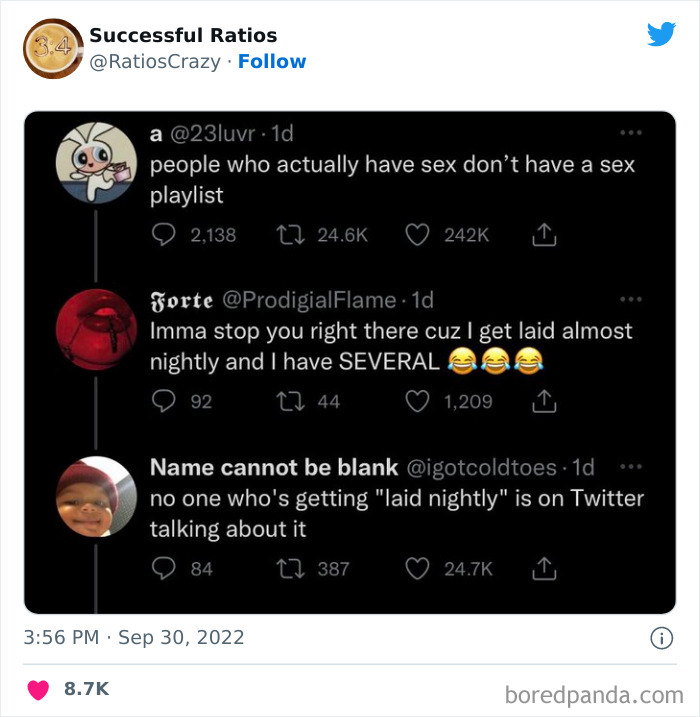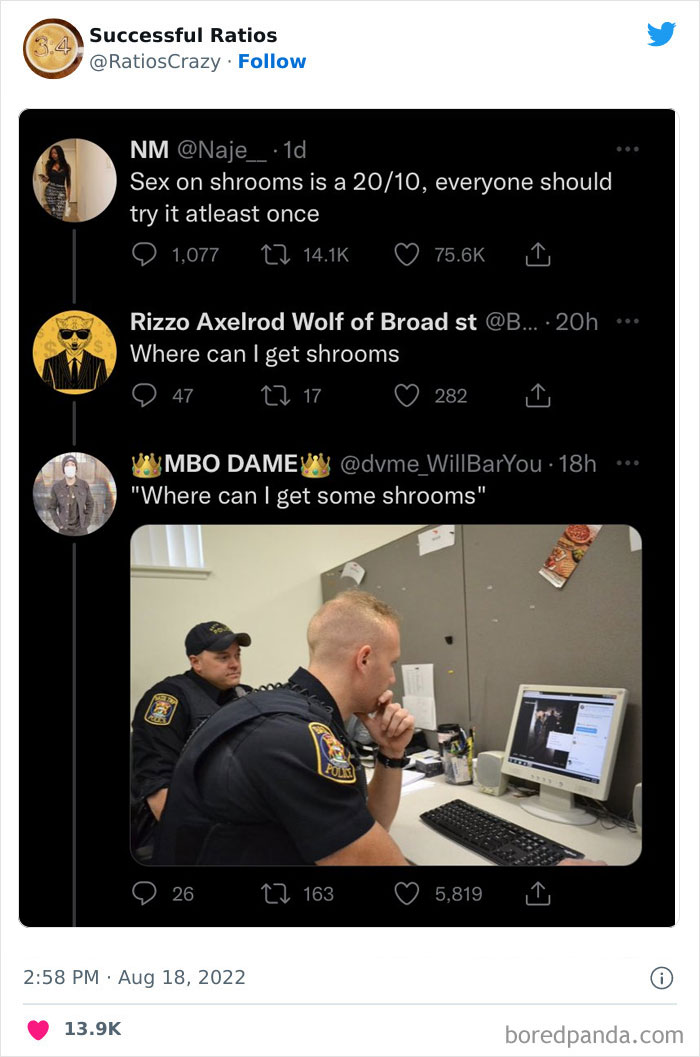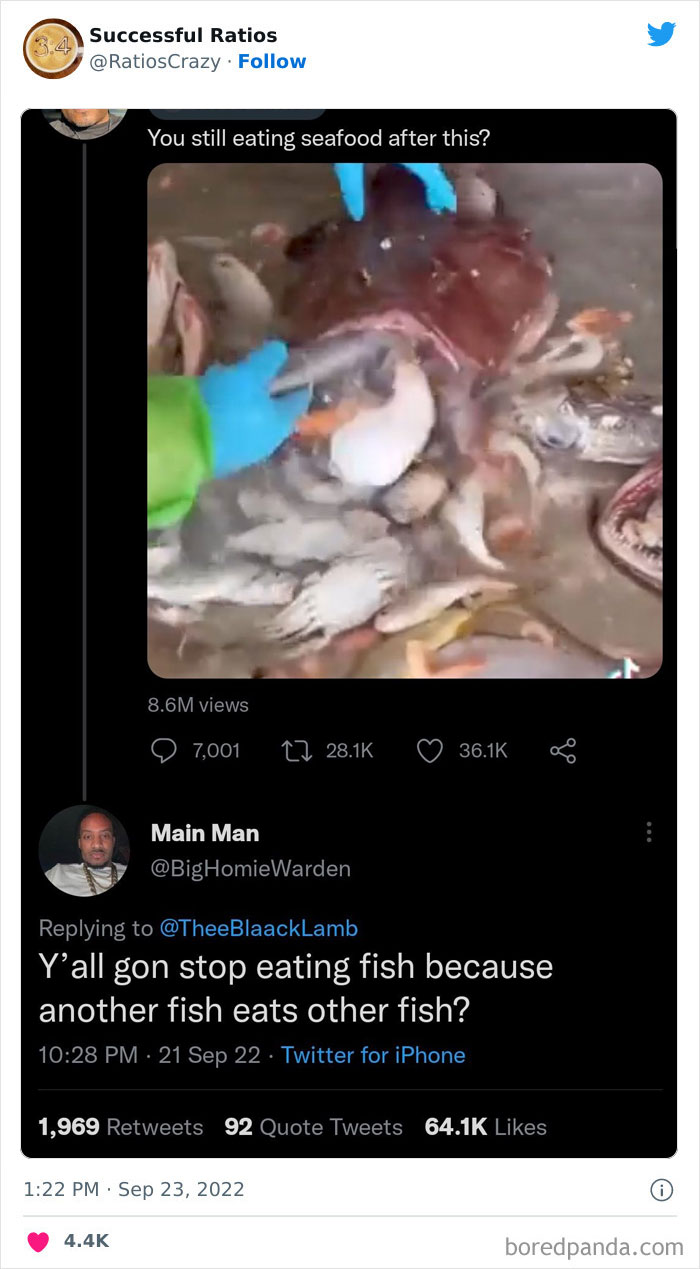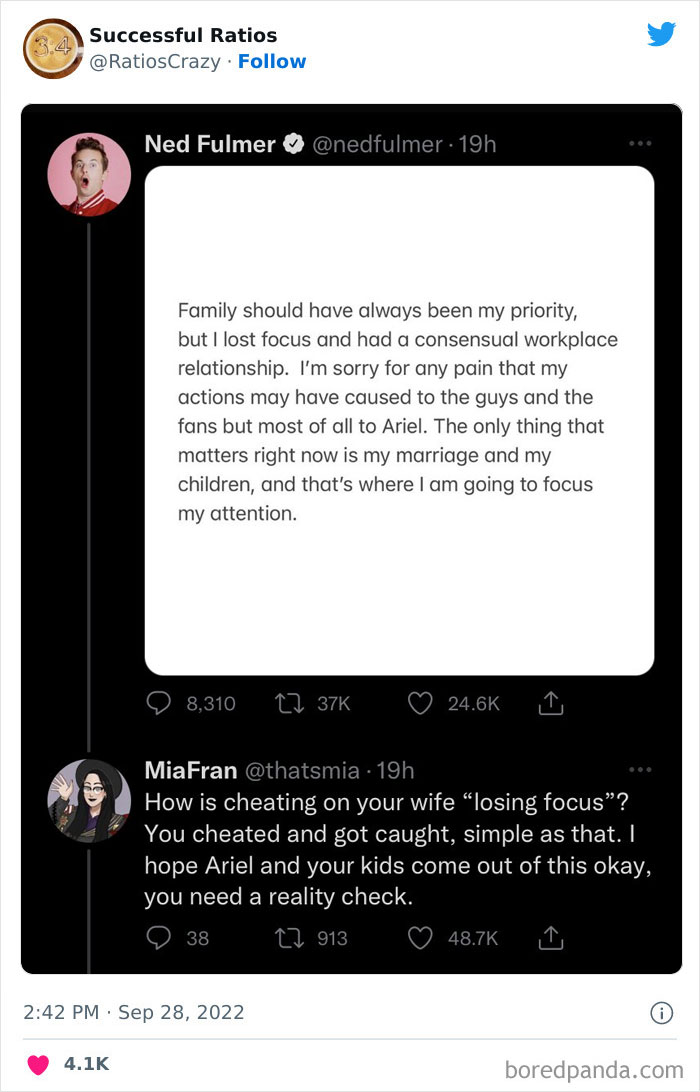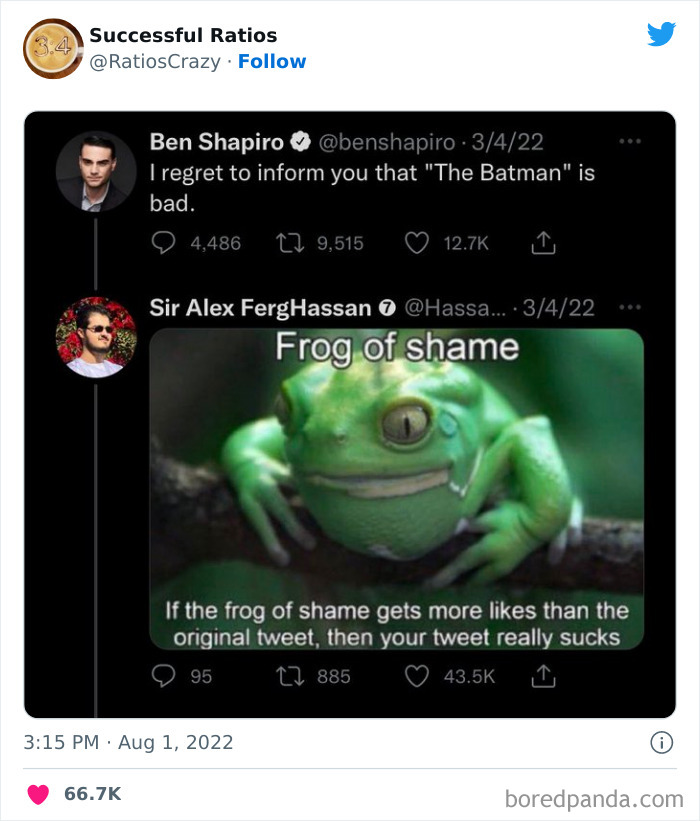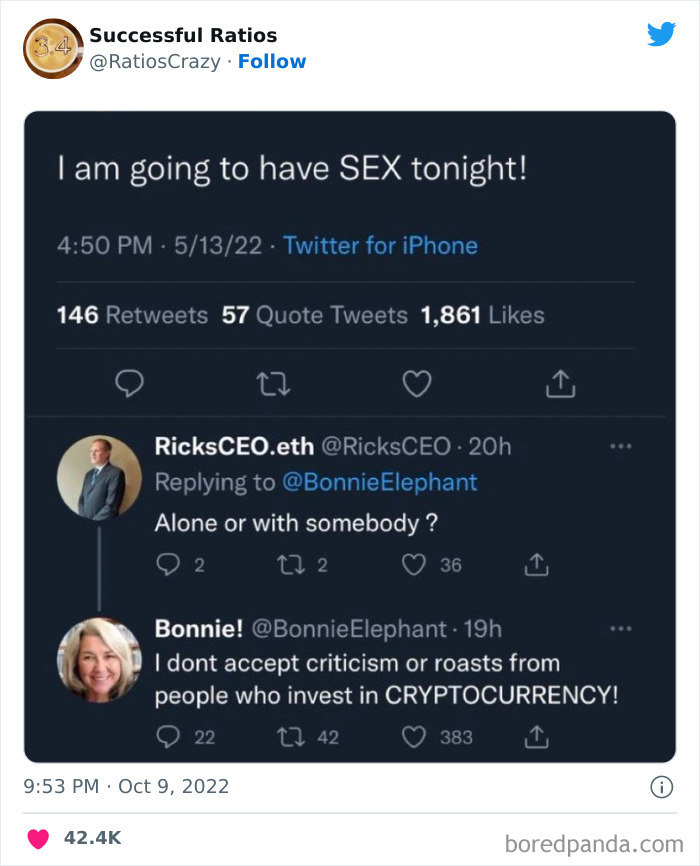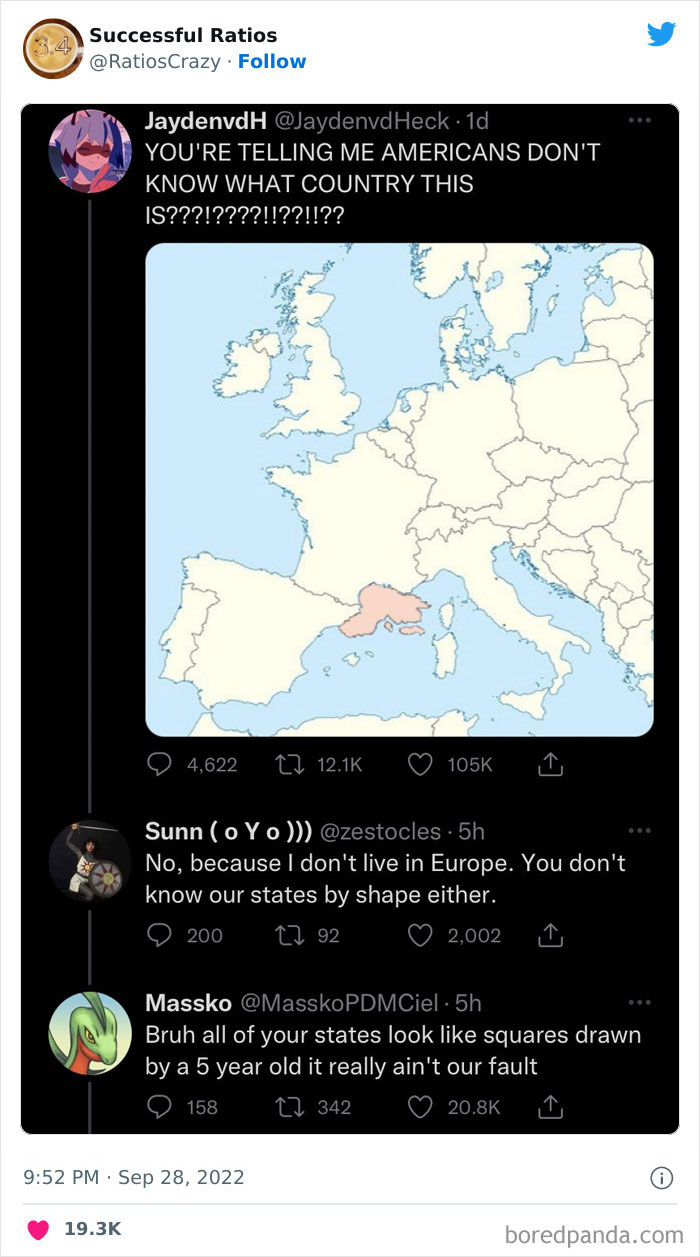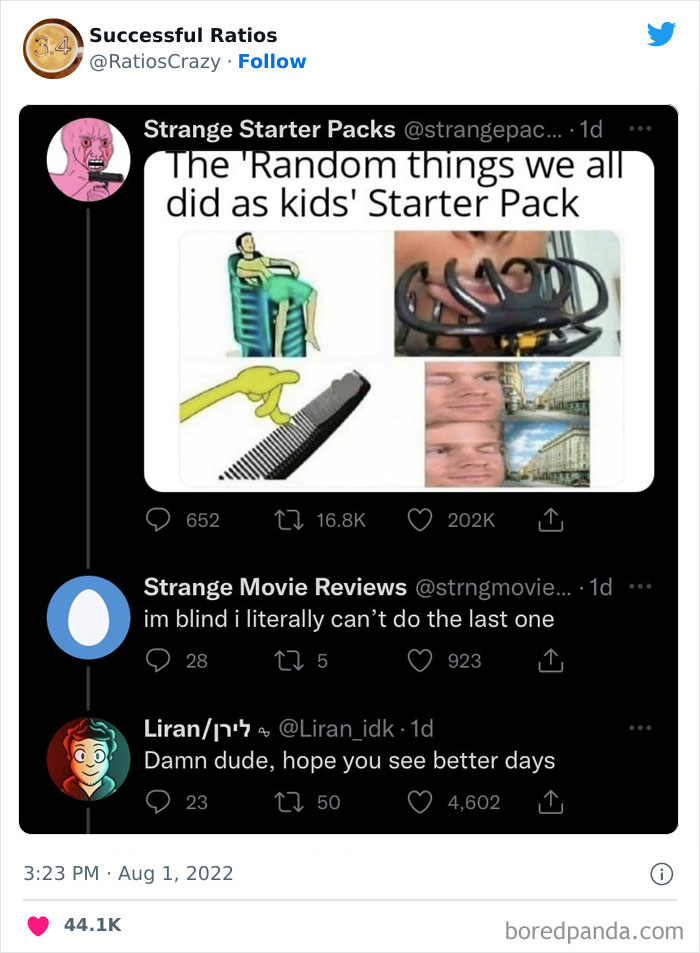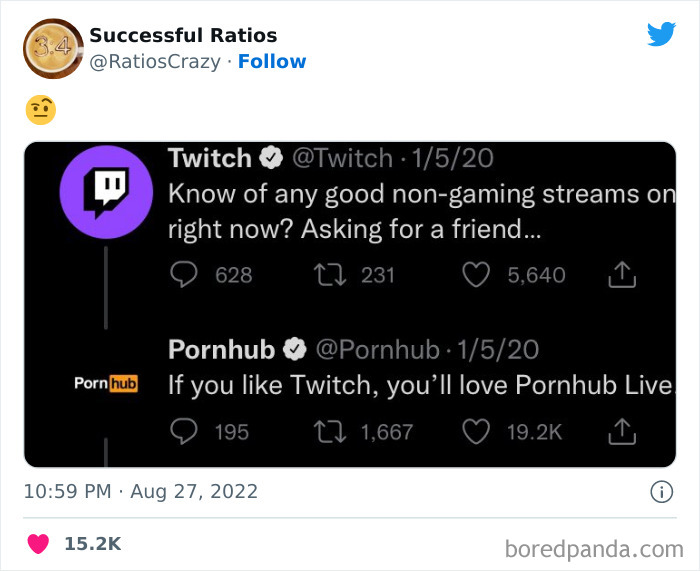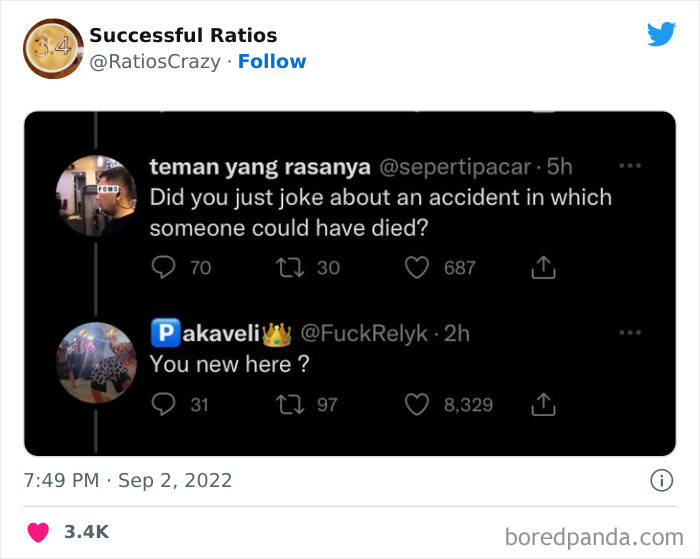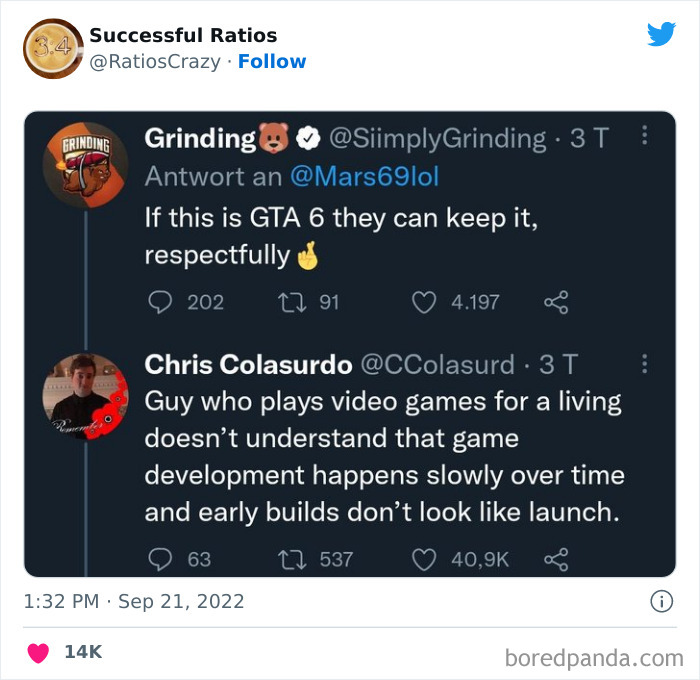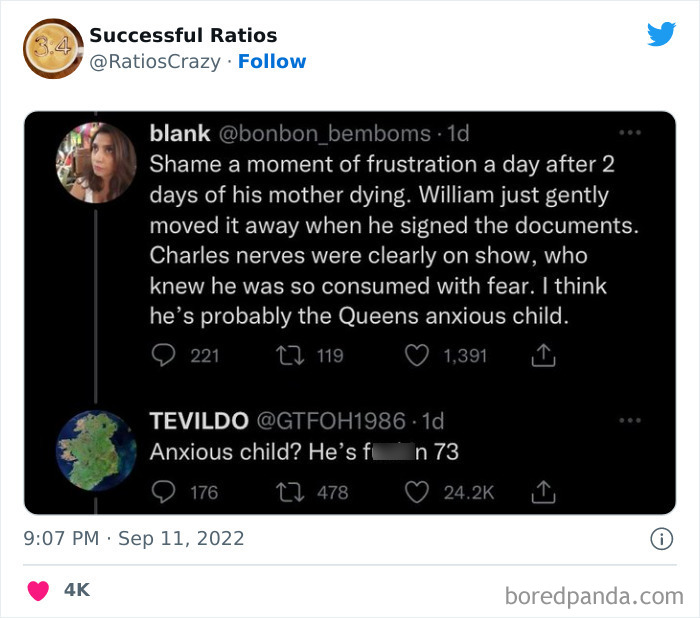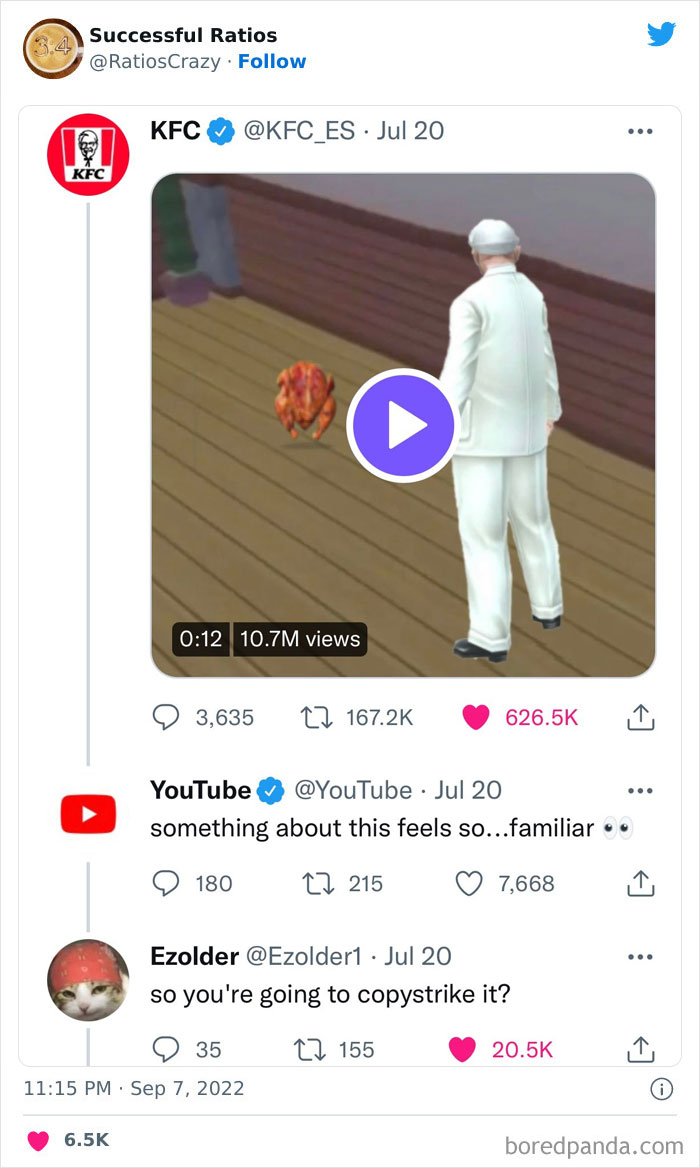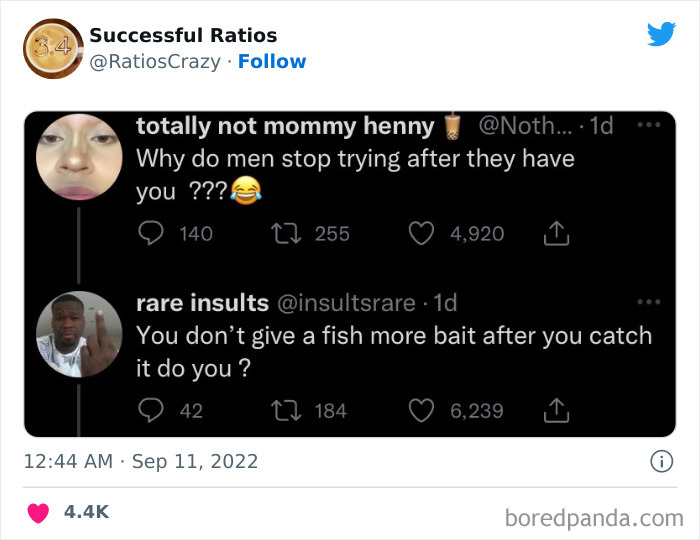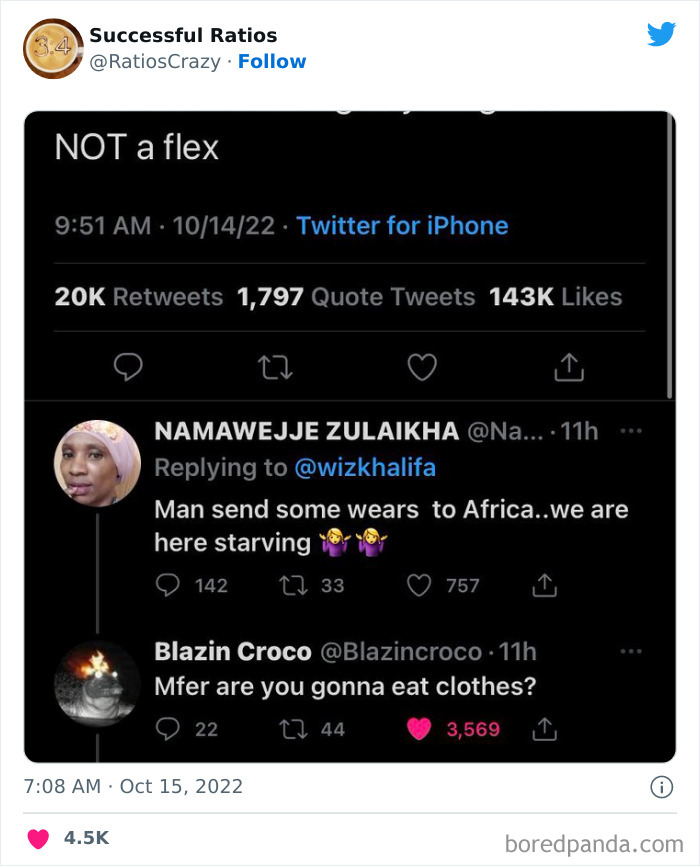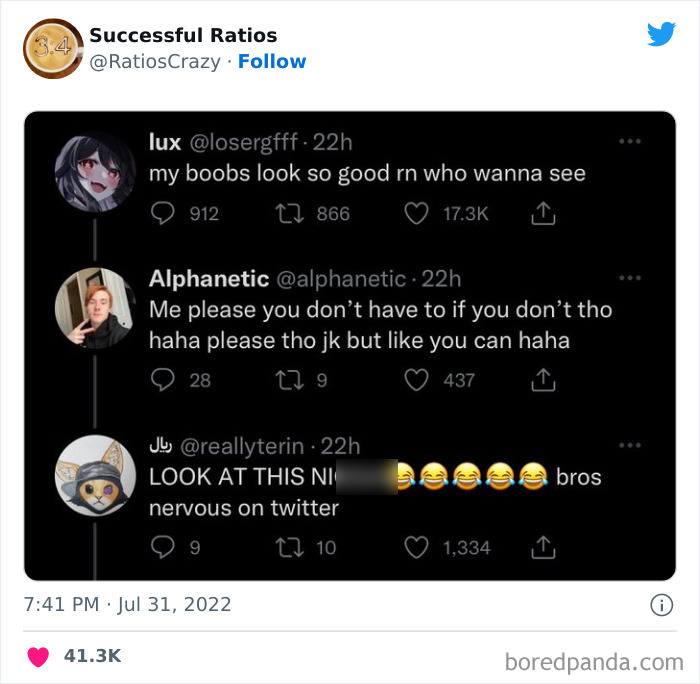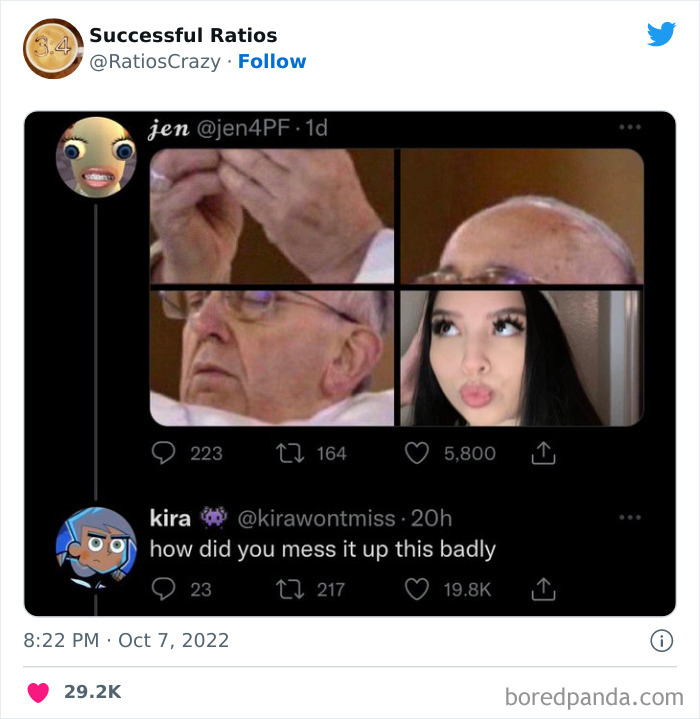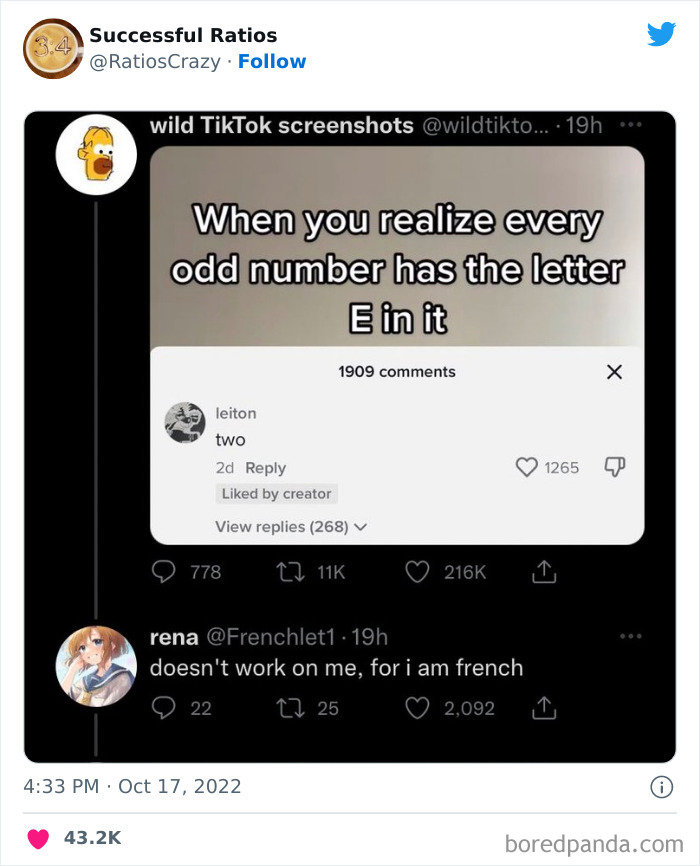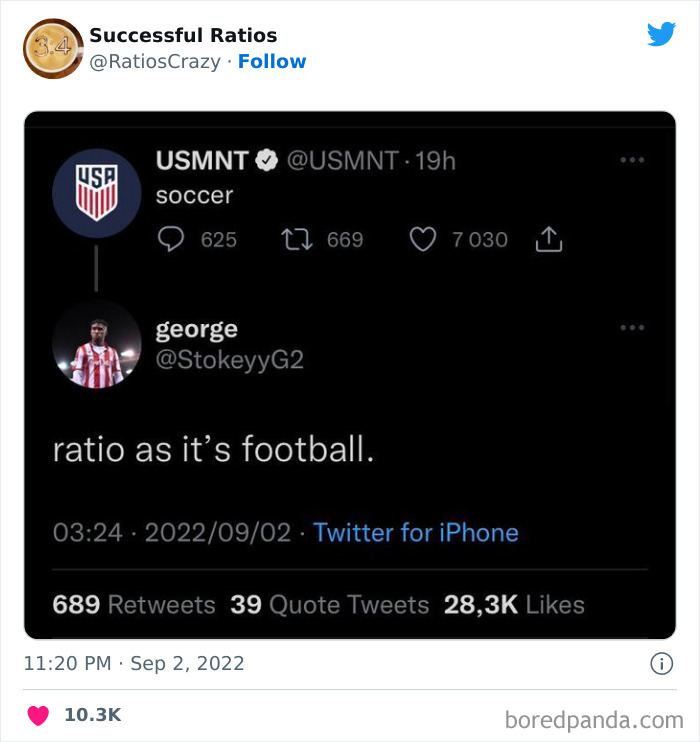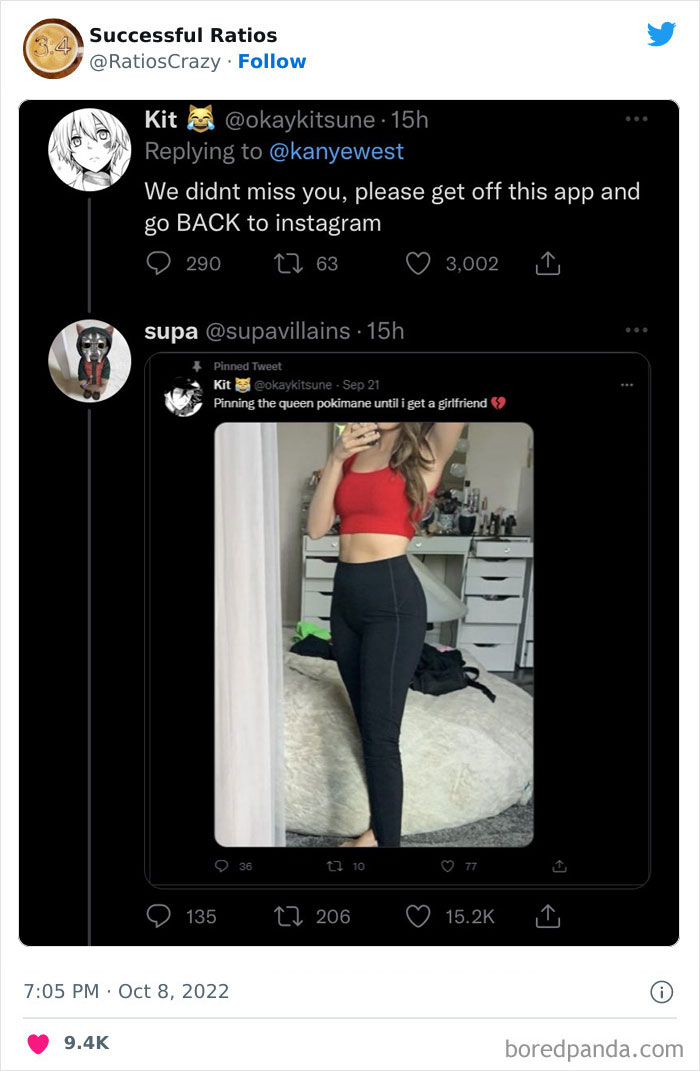Sometimes, the best content isn’t the thing staring you right in your face. At times, the comments people leave underneath social media posts are the real treasure—whether for good or for ill. If a post gets more replies than likes, or a post comment gets more attention than the original post, then that’s what we call getting ‘ratioed.’ [Adjusts thick glasses and checks ‘Urban Dictionary.’] At least, that’s what the kids say.
Social media posts with the worst like/comment ratio and most epic or spiciest takes get featured on the popular ‘Successful Ratios’ Twitter page. And we’ve collected their best posts to share with you. As you’re scrolling down, upvote the tweets that you feel had the biggest impact, and be sure to let us know what you think of them. Have you ever been ratioed on social media before? Which social network is your favorite and why? Tell us all about it in the comments.
In the mood for some more Twitter comment comeback weirdness? Check out Bored Panda’s earlier article about getting ratioed right over here.
This post may include affiliate links.
We got in touch with comedy writer and Twitter veteran Ariane Sherine, from the UK, to have a chat about social media comebacks. She explained to Bored Panda that editing your tweets for brevity and clarity, while also focusing on reply speed can help your comments get a ton more attention online.
"Make them [the tweets] short and snappy," she said. "After you write a tweet, go through and delete any extraneous words. Speed is also essential—the quicker you can reply after the tweet is posted, the better, as more people will see it."
The comedy expert pointed out that "most people on Twitter are lovely," so you shouldn't be afraid of others sharing their opinions about your posts. "I find you get back what you put out—post negative tweets, you attract negative people, and the same is true of positive tweets."
Actually it can be spelled: or . Either one is correct. Sort of like Theater or Theatre, Favor or Favour, and Color or Colour.
Oh cool it sort of reminds me of mine where we write !
Load More Replies...However, that doesn't mean that there aren't any trolls on social media. "I do get the odd troll, but I just mute them," Ariane told Bored Panda that the best policy, troll-wise, is to ignore them. In other words, don't feed the trolls. Don't give them the attention they crave so much!
We were also curious to get Ariane's opinion on how Twitter might change if Elon Musk really does end up buying the social network.
"I genuinely have no idea. I do hope he won't bring Donald Trump back as he suggested. I've quite enjoyed the respite from his unhinged ramblings!" she said that she hopes Twitter will continue to be a Trump-free zone in the future as well.
The idea of the ‘ratio’ and getting ‘ratioed’ in the context of social media posts and comments was born in 2017, and generally meant that the greater the ratio of replies to likes or retweets, the ‘worse’ the comment is. In other words, it’s a way to measure how outrageous(ly bad) a post might be. On the flip side, it might mean that the comments underneath the original post are just that much better and more creative.
A lieutenant with a loudspeaker, speaking over the lines: We have a K-pop band in the trenches and we are not afraid to use them!
“The Ratio or Ratioed refers to an unofficial Twitter law which states that if the amount of replies to a tweet greatly outnumbers the number of retweets and likes, then the tweet is bad. Additionally, ‘to ratio’ a tweet means to make a quote retweet or reply that manages to get more likes and retweets than the quoted post,” Know Your Meme explains.
The ‘Successful Ratios’ Twitter page has amassed a following of over 243.3k people. Taking into account that it was created only just over a year ago, in September of 2021, that’s quite an achievement!
Plenty of folks love a good laugh and to read some spicy social media comments, so it’s no wonder that ‘Successful Ratios’ has such a solid following. It’s also proof that even the most unlikely posts can sometimes go viral on Twitter. And that good comedy is almost always appreciated.
So many things need explaining here - who cuts hornets with scissors? How exactly are they protected? Why is the hornet's screen so far above eye level?
Recently, Bored Panda spoke about Twitter culture and viral content with two people who know the platform very well.
Pop culture expert Mike Sington had this to say: "Online content is usually carefully curated. Weird or bizarre content immediately jumps out and grabs attention, because it’s not what we’re used to seeing. It’s the contrast with what’s usually posted online that gets the initial attention.”
According to the Twitter and pop culture expert, humor will very likely continue to be massively popular on social media in the future. One thing that might change, however, is what the jokes are about. In short, we’ll definitely be laughing, but it’s unclear, about what.
"Humor is here to stay, and I don’t see the style of humor changing much in the future. Of course, the subject of what we find humorous will change because the best humor is of the moment, it’s about what’s happening now," Mike told us.
"Today’s memes are funny to us today, but if we were to look back at them from five years into the future, we’d probably wonder why they grabbed the attention they did," he pointed out that context is very important to internet memes.
"Trust that quality content will naturally get views and likes. If you’re only posting with the goal of getting views and likes, as a content creator, you won’t have longevity. You may get a momentary burst of attention, but people will soon move on if they see the rest of your content lacks quality,” Mike noted that quality content rises to the top.
Meanwhile, content creator Trev Lewis highlighted the fact that some of the brightest people from around the globe use Twitter. However, at the same time, Twitter has led to some people becoming very aggressive in how they share their opinions.
Not even sure what to say about this, it’s literally to the tune of baby shark… (https://youtu.be/l67cA2H7tyQ)
I couldn't even understand the other half .. :D
Load More Replies...I thought "ratioed" was having more comments than likes. Has that meaning shifted to a subjective preference of a specific comment? Did ratioing become this generation 's 'pwn' when I wasn't looking?
I thought it meant the answer has more likes than the original comment, which is true for most of these posts
Load More Replies...This collection of relentless lameness that exposes BP editors' appallingly low standards.
Yo my man Jonas, You've done some great threads here. . . But what the actual f*** is this?? Please man, stick to simple stuff!! Love you!!
I couldn't even understand the other half .. :D
Load More Replies...I thought "ratioed" was having more comments than likes. Has that meaning shifted to a subjective preference of a specific comment? Did ratioing become this generation 's 'pwn' when I wasn't looking?
I thought it meant the answer has more likes than the original comment, which is true for most of these posts
Load More Replies...This collection of relentless lameness that exposes BP editors' appallingly low standards.
Yo my man Jonas, You've done some great threads here. . . But what the actual f*** is this?? Please man, stick to simple stuff!! Love you!!

 Dark Mode
Dark Mode  No fees, cancel anytime
No fees, cancel anytime 




